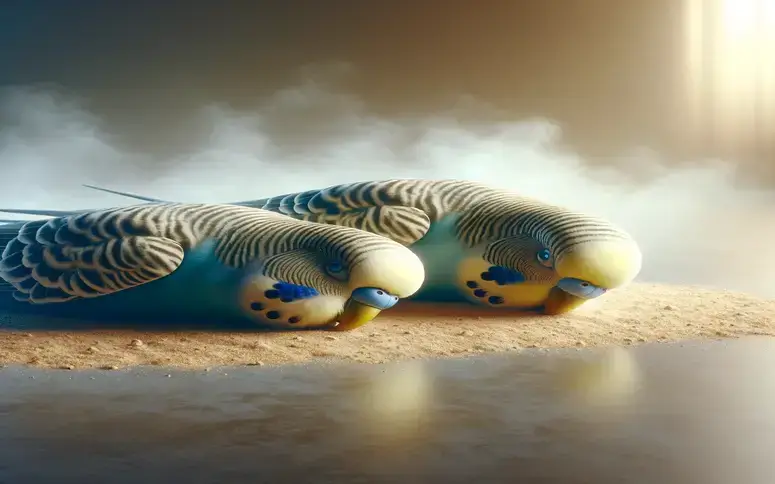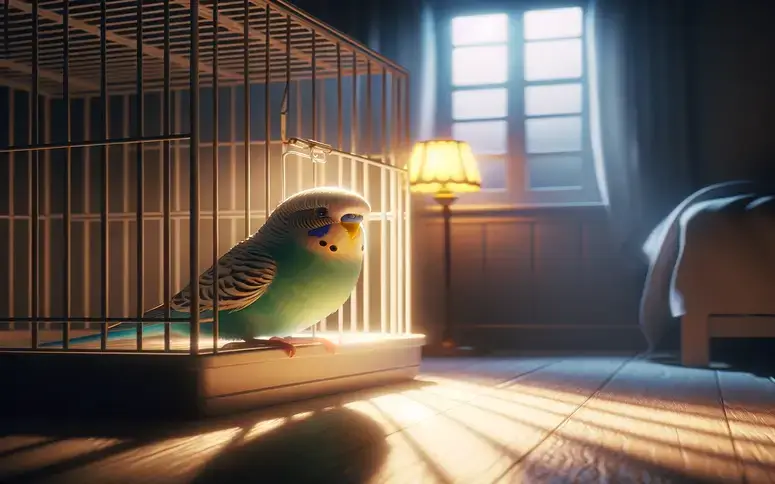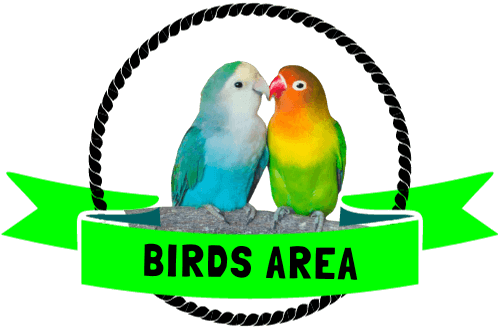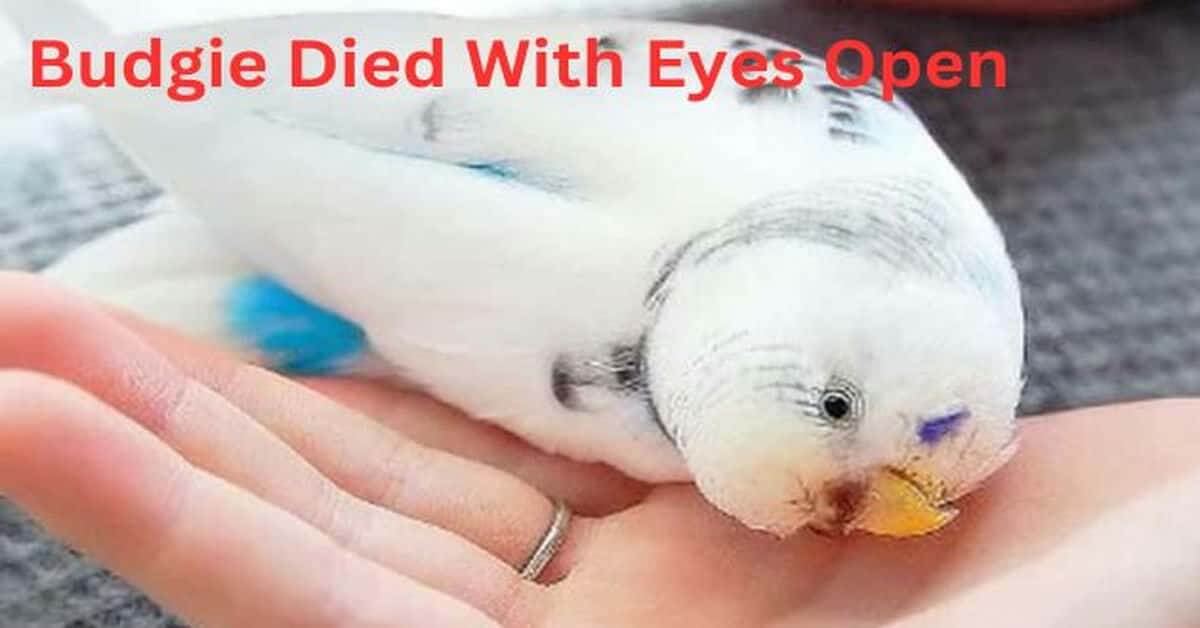Why Budgie Died With Eyes Open?
Can Budgie die with eyes open? Yes, budgie can sometimes die with his eyes open. A budgie dying with eyes open often results from sudden causes like heart attack, stroke, or shock. Respiratory infections, toxins, or stress could also be factors.
However, I am truly sorry to say that when a beloved Budgie dies with its eyes open, it is normal for owners to feel shocked and confused. You might wonder if the bird suffered or if this indicates something deeper, medically.
While this situation seems unusual, it’s actually quite typical among birds. Budgies are fragile, and many factors can lead to sudden death, often leaving their eyes open.
This comprehensive guide covers causes, feedback from experts, and preventive steps you can take to protect your bird’s health.
Do Budgies Birds Die With Their Eyes Open?
Yes, it is possible. While seeing your budgie with open eyes might be unsettling, it’s often a natural response to sudden deaths.
Birds lack the muscular control to close their eyes once the heart stops. Unlike humans, who can reflexively shut their eyes as they pass away, birds often don’t experience this.
If your budgie dies with open eyes, it doesn’t necessarily mean they suffered or were in pain. More often than not, it’s simply how their body reacts in the final moments.
But there are many reasons why birds die with their eyes open that we need to know so that we can watch out for other birds.
Why Does Budgie Die With His Eyes Open? 16 Reasons
- Sudden Trauma
- Heart Attack or Stroke
- Respiratory Distress
- Infections and Parasites
- Sudden Stress or Shock
- Toxins and Poisoning
- Nutritional Deficiencies
- Neurological Issues
- Metabolic Disorders
- Genetic Predispositions
- Fatty Liver Disease
- Kidney Failure
- Age and Natural Causes
- Egg Binding in Female Budgies
- Tumors and Cancer
- Heatstroke

When a budgie dies with its eyes open, it can be distressing, and understanding its potential reasons can provide some closure.
While budgies are generally hardy birds, several factors can contribute to this unfortunate occurrence:
1. Sudden Trauma
A budgie birds may die with its eyes open if it has experienced a severe traumatic event, such as a fall, collision, or attack by another bird or predator. These events can cause instant fatalities, and the shock may open the eyes.
2. Heart Attack or Stroke
Like all animals, Budgies can suffer from heart-related issues. They are prone to cardiovascular problems, particularly when they are stressed or aged.
A heart attack or stroke often results in a sudden death, leaving the budgie with open eyes. According to avian veterinarians, stress-induced heart failure is one of the leading causes of instant death in budgies.
Dr Sarah Roberts, a certified avian vet, explains, “Budgies, especially those over 5 years old, are at risk of heart complications. Owners should minimize stress triggers, such as loud noises, abrupt temperature changes, or overhandling.”
3. Respiratory Distress
One of the most common health issues budgies face is respiratory infections. These can happen due to exposure to dust, allergens, or unclean cage environments.
Also, Budgies can cause respiratory infections caused by bacteria, viruses, or fungi. Respiratory diseases progress quickly in birds, and owners often fail to notice the symptoms in time.
Labored breathing and open-mouth breathing are early warning signs. Lastly, it increases the risk of death with open eyes.
Regularly cleaning the cage and ensuring no drafts are in the area where the budgie is kept can significantly reduce this risk.
4. Infections and Parasites
Budgies are vulnerable to bacterial infections and parasitic infestations that can cause sudden death. Coccidiosis, a parasitic disease, can kill budgies within days if untreated.
Symptoms include diarrhea, lethargy, and loss of appetite.
While coccidiosis is well-known, budgies can also suffer from aspergillosis, a fungal infection caused by mold exposure in their environment.
If undetected, this infection can lead to respiratory distress and sudden death.
5. Sudden Stress or Shock
Budgies are highly sensitive creatures. Extremely stressful situations, sudden loud noises, fright, sudden movement, or even the appearance of a predator outside the window can send them into shock.
Shock can cause a sudden stop in the heart, leading to instant death.
To minimize risk, creating a peaceful and calm environment for your budgie is essential in maintaining their health. Avoid exposing your bird to unnecessary stress, including loud TV or moving their cage frequently.
6. Toxins and Poisoning
Budgies are highly sensitive to environmental toxins. Teflon-coated cookware, household cleaners, aerosol sprays, and even some plants can cause poisoning. Budgies exposed to these toxins may die suddenly, often with their eyes wide open due to the rapid nature of the poisoning.
Jeanne Smith, DVM, owner of Avian Health Services, said, “Many household items are fatal to birds, even in small amounts. Always be cautious of what is used in the home when you have birds. Even scented candles can release harmful chemicals.”
7. Nutritional Deficiencies
- Malnutrition: Inadequate or imbalanced diets lacking essential nutrients can weaken a budgie’s immune system, making it more susceptible to sudden death.
- Toxic Foods: Ingestion of toxic foods or substances can lead to fatal consequences for budgies, causing them to die with their eyes open. Some common examples of toxic foods for budgies include avocado, chocolate, and onions. Even seemingly harmless items like certain houseplants or household products can be harmful.
8. Neurological Issues
Some neurological conditions or seizures can result in sudden death, with the eyes remaining open due to the bird’s inability to control its bodily functions.
9. Metabolic Disorders
Metabolic disorders, including diabetes, can lead to life-threatening complications for budgies, resulting in sudden death with the eyes open.
10. Genetic Predispositions
Sometimes, budgies might have certain genes from their parents that can make them suddenly pass away with their eyes still open. They inherit certain conditions we can’t see until too late.
11. Fatty Liver Disease
An improper diet, particularly one overloaded with seeds, can lead to fatty liver disease. This condition often progresses silently, but once it reaches a critical stage, it can cause sudden death.
Birds suffering from fatty liver disease may not exhibit many symptoms until it’s too late. So, it’s crucial to offer your budgie a well-balanced diet, including pellets, fruits, and vegetables, to prevent obesity and related liver issues.
12. Kidney Failure
Like many small animals, budgies are prone to kidney disease, often unnoticed until the bird is gravely ill.
Budgies suffering from kidney issues may appear slightly lethargic or stop eating days before they pass.
Also you need to know- How many times do budgies eat a day?
Regular check-ups with an avian vet and providing a low-protein, balanced diet can help manage the risk of kidney failure in budgies.
13. Age and Natural Causes
As budgies grow older, they become susceptible to natural deaths. The average lifespan of a budgie ranges from 5-10 years. However, some can live up to 15 years with exceptional care.
When a budgie dies of old age, it can happen very quickly, often leaving the eyes open.
However, In older budgies, age-related health issues can lead to sudden death. For instance, organ failure or a weakened immune system may result in a bird passing away with its eyes open.
If your budgie is older and shows signs of slowing down, lethargy, or reduced interest in food, its death may be part of the ageing process.
14. Egg Binding in Female Budgies
If your budgie is female, egg binding could be a cause of death.
Egg binding happens when a budgie cannot pass an egg, leading to internal complications that can be fatal. (Symptoms of egg binding include straining, abdominal swelling, and lack of movement).
If you suspect egg binding, seek veterinary care immediately. Early intervention can save the bird’s life.
15. Tumours and Cancer
Like humans, birds can develop tumours, particularly in the reproductive organs or liver. Tumours can grow silently, and it’s often too late by the time the symptoms appear. Sudden death is common in cases of undiagnosed cancers.
16. Heatstroke
Budgies are very sensitive to temperature. Exposure to temperatures above 30°C (86°F) can lead to heatstroke.
Signs of overheating include panting, spreading wings, and lethargy. In severe cases, a budgie can collapse and die suddenly.
Always ensure your budgie’s environment is maintained at an optimal temperature, between 18-22°C (64-72°F).
So, if your budgie/parakeet passes away suddenly, it’s advisable to consult with an avian veterinarian. They can provide insight into the possible cause of death, perform a post-mortem examination if needed, and offer guidance on caring for any other budgies you may have to ensure their health and well-being.
Why Should I Be Concerned If Budgie Died With His Eyes Open?

If your budgie died with its eyes open, it can be a sign of sudden death, often from hidden illnesses. This could suggest an underlying health issue or distress.
Investigating the cause is crucial to prevent problems with other birds, especially due to a contagious disease.
Knowing what led to the bird’s death can offer peace of mind and help you make necessary changes in the environment, diet, or care.
Consulting a vet for a necropsy (animal autopsy) can help find the exact cause and ensure the health of other pets.
How to Recognize Signs of Illness in Budgies
Recognizing early signs of illness can prevent sudden death in budgies. These signs include:
- Fluffed feathers
- Lethargy
- Loss of appetite
- Labored breathing
- Excessive sleeping
If you notice any of these symptoms, consult an avian vet immediately. Early intervention can save your bird’s life.
Dr. Emily Green, an avian specialist, emphasizes the importance of monitoring budgie behavior: “Budgies are prey animals, meaning they hide their illness very well. By the time they show visible signs, it can often be too late. Owners must be proactive about regular vet visits and environmental care.”
Can Budgies Play Dead?
Budgies can’t actually play dead like some other animals might. However, they can sometimes become very still or “play dead” if they’re scared or stressed. This behavior isn’t intentional; it’s a natural response to feeling threatened.
If your budgie seems to be doing this often, checking their environment and ensuring they’re comfortable is essential. Engaging them with toys and gentle interaction can help ease their anxiety.
What Does A Dead Budgie Look Like?

When budgie birds pass away, several visible signs indicate their demise. These signs can include:
- Lifelessness: A dead budgie will appear limp and motionless, with no signs of movement, chirping, or other usual activity.
- Eyes Open: In many cases, a deceased budgie will open its eyes, which is common in birds.
- No Reaction to Stimuli: A dead budgie won’t respond to external stimuli. You may notice a lack of response to sounds, touch, or other stimuli that would typically prompt a reaction.
- Unnatural Position: The budgie may be in an unnatural position, such as lying on its side or back, as opposed to the typical upright or perched position.
- Change in Color: Due to the cessation of blood circulation, the color of the budgie’s feathers and skin may appear different, possibly paler.
However, it’s vital to approach such situations with care and respect for your pet. If you’re unsure whether your budgie has passed away, consider consulting with a veterinarian for confirmation and guidance on handling the situation appropriately.
Also, read
How Do You Deal With A Dead Budgie?
It’s tough when you lose a budgie you love, especially when you’re unsure what to do next.
Here are some steps to take: do everything with kindness and respect.
1. Talk to a Vet or an Expert
First, contact a vet or someone who knows a lot about pets. They can tell you the best way to say goodbye, like taking your budgie to a place where it can be cremated or buried in a special pet cemetery.
2. Proper Disposal Methods
If you decide to bury your budgie at home, pick a spot where the ground is just right, and it won’t be disturbed.
If you can’t bury them, it’s okay to wrap your budgie in plastic and place them in the bin, but only if necessary.
3. Emotional Support
It’s okay to feel sad. Talk about it with friends or family who understand. Doing things that make you feel better can help, and maybe you could do something special to remember your budgie.
We’re really sorry if you’re going through this. It’s essential to do what feels right for you and to follow any rules about saying goodbye to pets where you live.
Why Did Both My Birds Die At The Same Time?

If both of your birds died simultaneously, it’s likely due to a shared environmental factor or a contagious disease that affected both of them.
Here are the main reasons this unfortunate event could happen:
- Toxic Exposure: Birds have very sensitive respiratory systems. Exposure to toxic substances, such as fumes from non-stick pans (PTFE fumes), certain aerosol sprays, or even some household plants, could lead to sudden death.
- Poor Air Quality: Smoke, excessive perfume, or other strong odors can also be harmful. Birds need clean, fresh air to stay healthy.
- Contagious Diseases: Some diseases are highly contagious among birds. If one bird catches it, the other is likely to as well, especially if they’re housed together. Examples include avian influenza or psittacosis.
- Nutritional Deficiencies or Poisoning: Both birds might have had access to the same contaminated or nutritionally inadequate food source.
To prevent such incidents in the future, ensure their living environment is safe and consult with a veterinarian for a thorough examination of any remaining birds.
It is also wise to review their diet, housing, and recent environmental changes.
If you suspect an infectious disease, proper disinfection of their living space and avoiding introducing new birds until you’re sure the environment is safe are crucial steps.
Can a Budgie Live Alone After One Dies?
Yes, a budgie can live alone after its companion dies, but it may experience loneliness or depression.
Budgies are social birds, and losing a companion can lead to behavioral changes like decreased activity, loss of appetite, or excessive calling.
To help, spend more time with your budgie, provide plenty of stimulating toys, and consider getting another budgie as a companion.
Regular interaction and attention can keep your bird happy and healthy.
Key Aspects Of Budgie Care To Prevent Untimely Death

Caring for budgies means giving them everything they need to thrive. I have already shared more information on how to prevent sudden death in Budgies due to the above underlying causes.
Here’s a simple guide to ensure your feathered friend lives a happy, healthy life:
- Safe and Healthy Environment: Choose a spacious cage (at least 18x18x24 inches) away from drafts and extreme temperatures. Clean regularly and avoid harmful chemicals.
- Balanced Diet: Feed a mix of fresh fruits, veggies, seeds, and pellets. Change their water daily and avoid toxic foods like avocado and chocolate.
- Mental and Physical Stimulation: Provide toys and perches for entertainment. Allow safe flight time to stretch their wings and engage in regular play.
- Regular Vet Check-ups: Schedule annual check-ups to catch health issues early. Monitor for changes in behavior as warning signs.
- Social Interaction: Bond with your budgie daily. If you’re away often, consider getting a companion to keep them company.
- Stress-Free Environment: Keep a calm home with a consistent routine to minimize stress from loud noises or sudden changes.
- Good Hygiene: Wash your hands before and after handling them. Maintain a clean living area free from pests.
By following these guidelines, you’ll ensure your budgie not only survives but thrives, bringing joy for years to come.
Do Parrots Birds Sleep With Their Eyes Open?
Yes, some parrots can sleep with one eye open. This behaviour is known as unihemispheric slow-wave sleep, where one half of the brain sleeps while the other remains alert.
This allows them to stay aware of their surroundings, a survival instinct in the wild.
When parrots are in a safe and comfortable environment, they often sleep with both eyes closed. If you notice your parrot occasionally resting with one eye open, it’s perfectly normal.
Frequently Asked Questions Of Budgie Died With Eyes Open
Do Birds Die With Eyes Open Or Closed?
Why Did My Baby Bird Die Overnight?
What Is The Most Common Cause Of Death In Budgies?
What Happens When A Budgie Dies?
Why Do Birds Die on Their Back?
Sum Up
When a budgie dies with its eyes open, it’s really sad. But, it doesn’t always tell us why it happened. Budgies can pass away with eyes open or shut. The main thing is their eyes don’t tell the whole story about why they died.
We need to ensure that our budgie friends are happy and safe. Watching them closely can help us see if they’re not feeling well. A budgie might need extra love and care if it loses its buddy.
Each budgie is special. Talking to a bird doctor is a smart move if you’re worried about your budgie’s health or how it died suddenly. Want to learn more about this? Check out the video below.
Thank you for reading our guide on this sensitive topic. And hey, if you found this info helpful, please share it with others.







